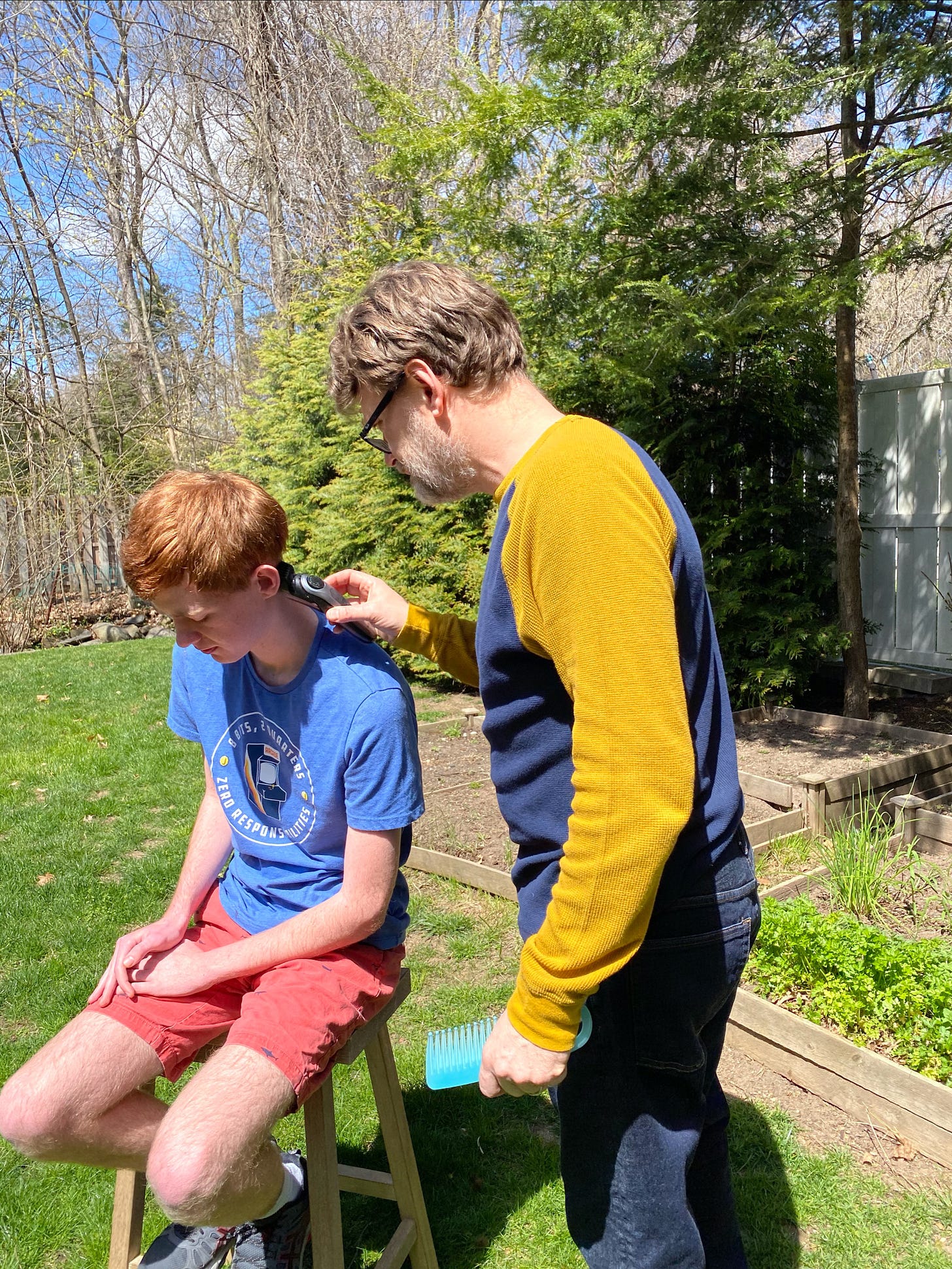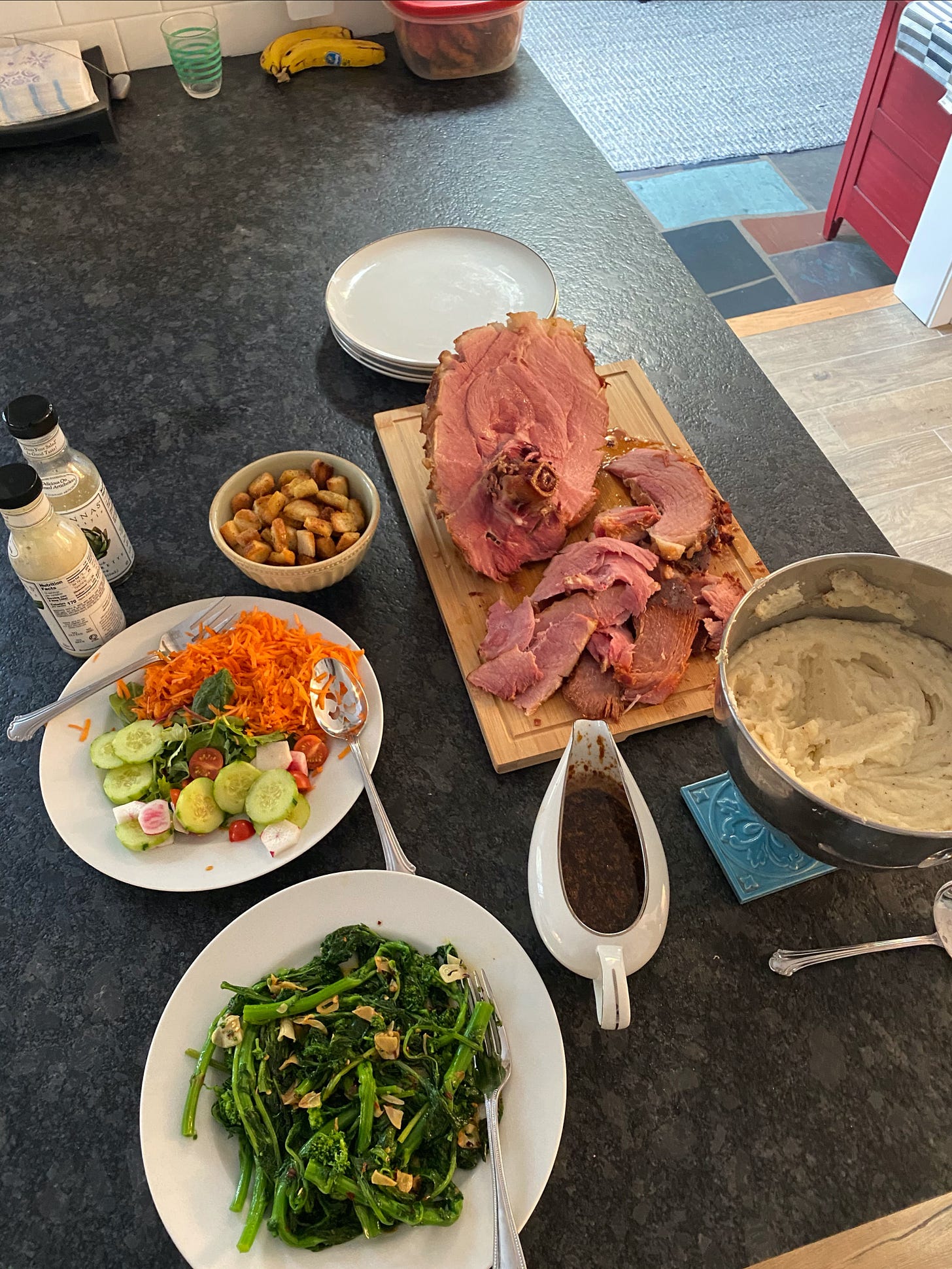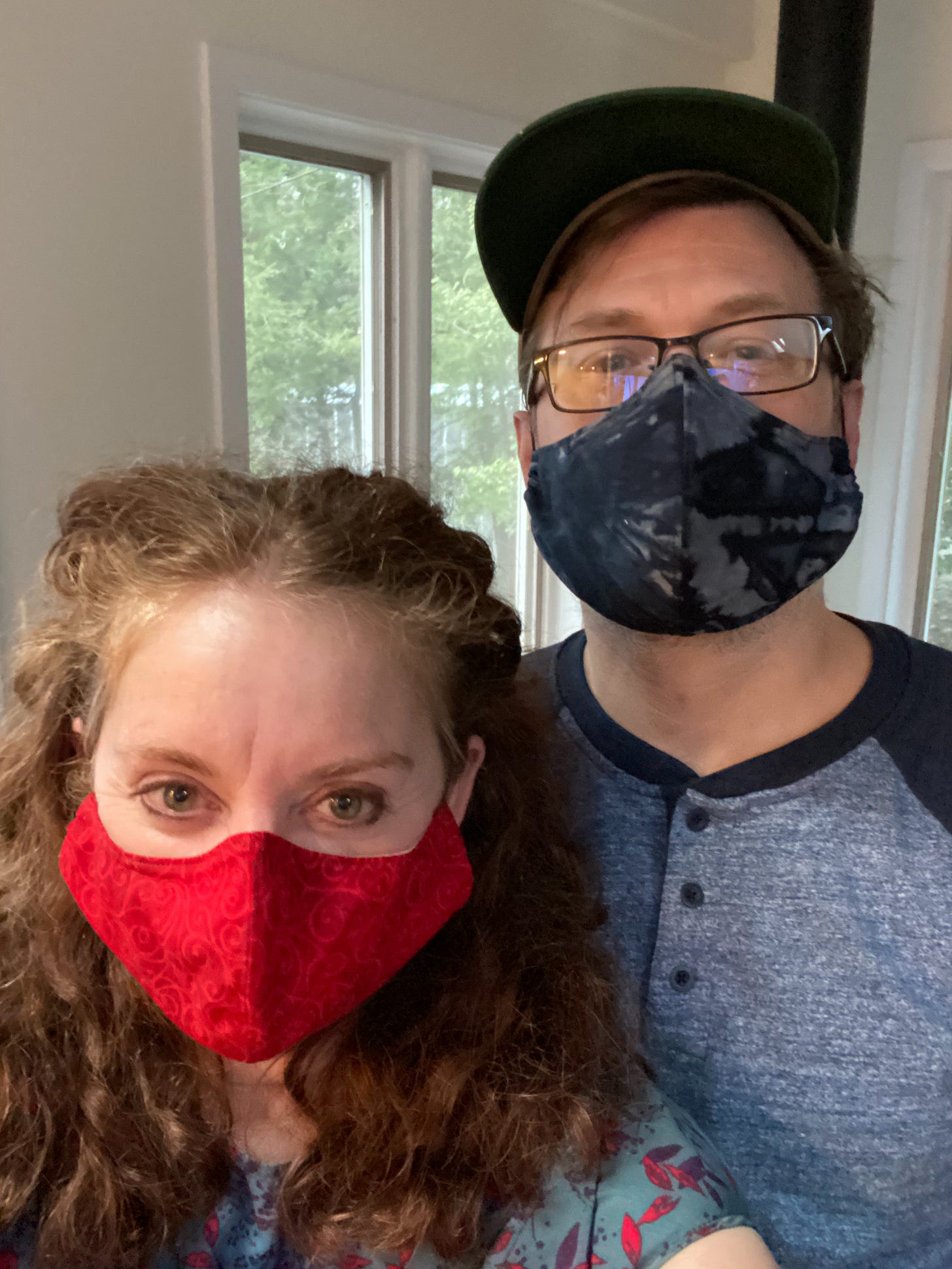How Do We Make Students Whole? Apt. 11D, April 17, 2020
Apt. 11D
Laura McKenna's Publications and Posts
How Do We Make Students Whole? Apt. 11D, April 17, 2020
Hi all!
As the virus spread through Northeastern Jersey in early March, I began stocking my pantry, finishing work obligations, and preparing the house to become headquarters for work, college, and high school. I logged onto local newspapers every morning and reported to Steve about which towns had a reported case, until an email from the mayor announced, "it's here."
My kid's high school closed early on Friday, March 13th, so teachers could begin preparations for virtual education, which would start the following week.
So, the morning of March 13th -- five weeks ago -- was the last day that my son was educated in any real way. Since then the teachers had an understandable learning curve translating their lessons into a virtual format. Rather than creating online virtual classes, using platforms like Zoom, Google Hangouts, or WebEx, his teacher posted daily assignments on Google Classroom. He answered seven questions about a YouTube video about history, filled out math worksheets using the teacher's notes as a guide, and practiced for the ACT using Khan Academy -- a lot of busy-work, in other words.
Occasionally, I would complain. My college student was getting live classes, why couldn't my high school kid get them, too? I was told that teachers were home-schooling their own children, so they couldn't run virtual classes for students.
If we don't consider worksheets as a proper education, then my son has missed a whole lotta school since early March. To date, without including April's spring break, my son missed 120 hours of education (typical school day = 6 hours of instruction). Some form of virtual online classes instruction will begin next Monday. With only four hours of online classes planned, every week will add another 26 hours to his total deficit.
If a highly-motivated kid in a highly-privileged home with a well-resourced school is owed time, what is happening in homes where families still don't have access to the Internet? What is happening to students who don't have parents who can supplement the education gap? What about students, who attend schools that are unable to even upload worksheets?
In the legal world, the "make whole doctrine" holds that a party who suffered a loss as a result of a broken contract must be compensated for that loss. "Being made whole" is actually a really ancient concept with references in the Bible.
In this case, students have suffered a loss. They have been deprived of an education that was promised and paid for. Even without these legal obligations, the impact of having millions of kids enter school in September with such a massive education deficit is a disaster. Something has to be done.
Back in the early weeks of school closures, I wrote an op-ed saying that students, particular those with special needs, should have the option for full time schooling during the summer months. Since then, some have made more ambitious proposals, such as a full year of extra school, while other have weaker plans, such as giving all students A's and walking away.
Policymakers and administrators are debating these choices right now. The best plans will involve more money and concessions from the teachers' unions. Please offer your voice at your local school board meeting and to your elected representatives and advocate to make students whole in a meaningful way. If Congress can bail out large corporations, they can also restore months of an education for America's children.
Be well! Laura
Snapshots




Links

As I document events on my blog and newsletter, I'm forever torn between focusing on the day-to-day amusements of daily life, such gaining weight by eating all the carbs and all the wine, and by documenting how f@cked up the world is right now.
In the midst of all this craziness, little life events still happen. My baby turned 18 yesterday. And Easter happened.
Loved this profile of Weird Al. Farmers are dumping their produce. Finding humor in a strange world. How you should store your veggies, so they last longer.

